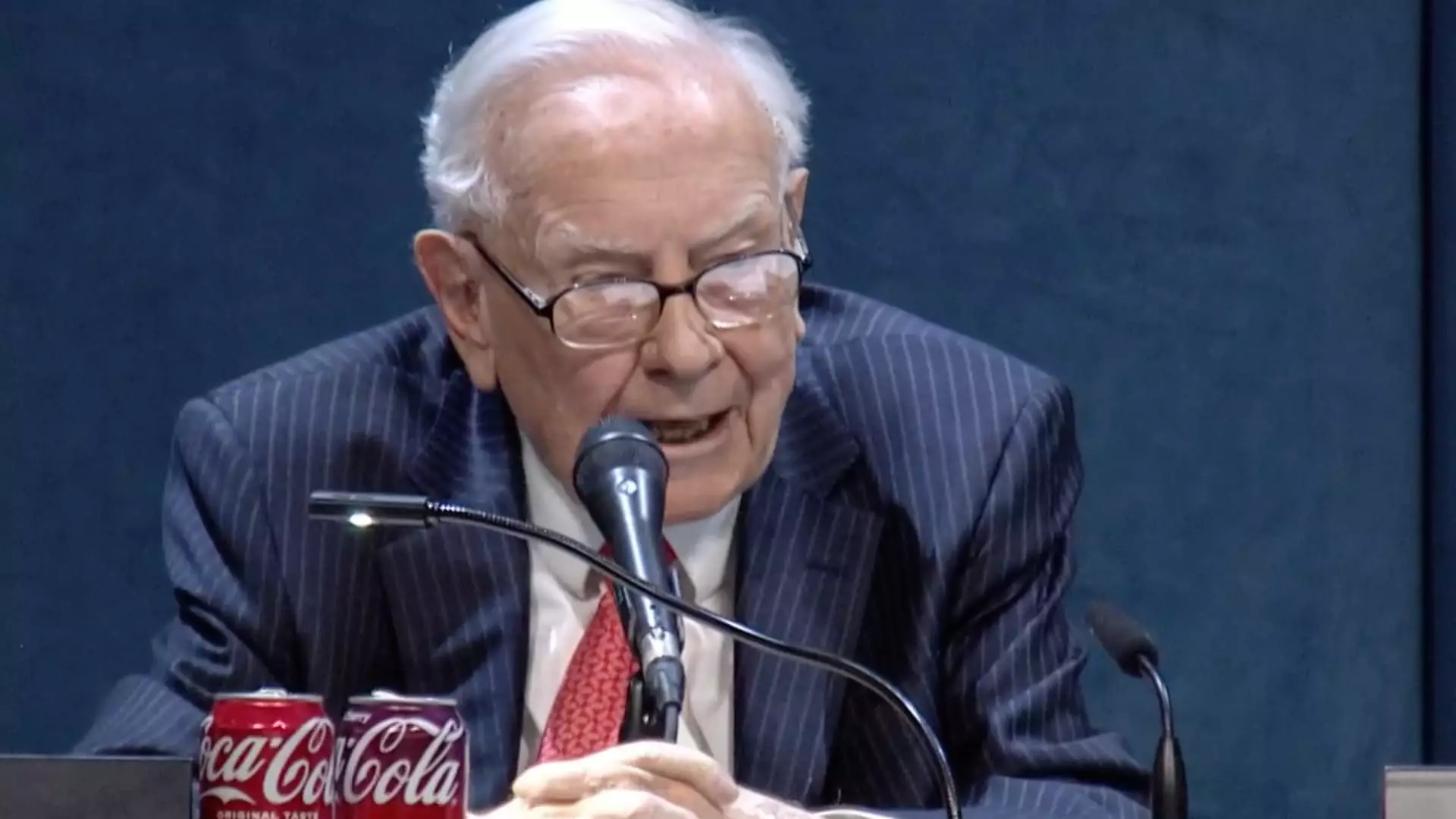In the world of finance, few names carry as much weight as Warren Buffett. Known as the “Oracle of Omaha,” his insights often serve as a barometer for the economic climate. Recently, during the annual Berkshire Hathaway shareholder meeting, Buffett issued a sharp critique of President Donald Trump’s aggressive trade policies, particularly the imposition of tariffs. While he refrained from mentioning Trump directly, his remarks were unmistakably directed toward the current administration’s approach to international trade. The emphasis on tariffs as tools of warfare presents a troubling premise for the global economic landscape, echoing concerns that go beyond mere financial speculation.
Buffett asserted, “Trade should not be a weapon.” This statement encapsulates the issue at hand. Tariffs inherently create friction between nations, positioning commerce as a zero-sum game where gains for one participant are losses for another. Such an outlook fosters animosity, driving a wedge between nations that should cooperate economically, especially in an increasingly interconnected world. We’ve seen how restrictive trade measures lead not only to economic destabilization but also to broader geopolitical tensions.
Economic Wisdom vs. Protectionist Delusions
Buffett’s perspective underscores an essential truth overlooked by many policymakers: the more prosperous the world becomes, the greater the prosperity for the United States. This is a testament to the interconnectedness of the modern economy. The idea that protectionist measures can safeguard American jobs is shortsighted at best; rather, these tactics often stifle innovation and growth in the long run. In fact, when the global economy thrives, American businesses benefit from new markets and increased demand for exports.
Buffett warns about the repercussions of protectionism, stating that when you have “seven and a half billion people that don’t like you very well,” it’s unwise to retreat into isolationism under the guise of protection. Such a mindset may offer temporary relief but ultimately sows the seeds of long-term harm, as it alienates potential allies and customers alike. Protecting a handful of domestic industries cannot compensate for the damage inflicted on the broader economy.
Global Trade as a Catalyst for Progress
Trade isn’t merely a financial transaction; it is a conduit for cultural exchange, technological advancement, and geopolitical stability. Buffett articulated that diverse nations should each do what they excel at, suggesting an ecosystem of global cooperation rather than isolationist policies that transform commerce into a battleground. The U.S. has historically thrived by championing free trade—what we’re witnessing now is a regression that threatens to undermine those very foundations.
The benefits of trade extend beyond the realm of economics. They cultivate relationships and foster understanding among nations, which is crucial for long-term peace and collaboration. By advocating for punitive tariffs, the current administration not only risks the prosperity of American industries but also diminishes the potential for global progress. The trend toward isolationism is reflected in the stock market’s volatility and impacts on economic forecasts, as underlined by Buffett’s observations regarding Berkshire Hathaway’s uncertainties in the face of escalating trade tensions.
A Cautionary Tale for Investors and Policymakers Alike
The ramifications of tariffs extend far beyond the kitchen table; they echo through the chambers of Wall Street and into the hallowed halls of Congress. As investors eagerly await Buffett’s guidance to navigate this uncertain macroenvironment, we see a clear consensus emerging: prudence should prevail over rash decisions fueled by nationalistic fervor. The first-quarter contraction of GDP signals the need for a measured approach to fiscal policy, grounded in economic reality rather than political bravado.
As Buffett noted, more than $134 billion worth of stock was divested due to concerns about tariffs and geopolitical fallout. His firm’s strategy, now laden with cash reserves, suggests a defensive posture amid unpredictability. This situation serves as a cautionary tale not just for investors but for policymakers grappling with the consequences of their trade decisions. The risks posed by tariffs must be acknowledged and confronted candidly; to ignore them is to gamble with the economic health of the nation.
Complacency in the face of rising tensions could lead to destabilizing consequences that no amount of tariffs can ultimately shield against. The challenge now lies in recalibrating our approach to international cooperation, prioritizing dialogue over division, and pursuing policies that uplift rather than stifle economic engagement.

